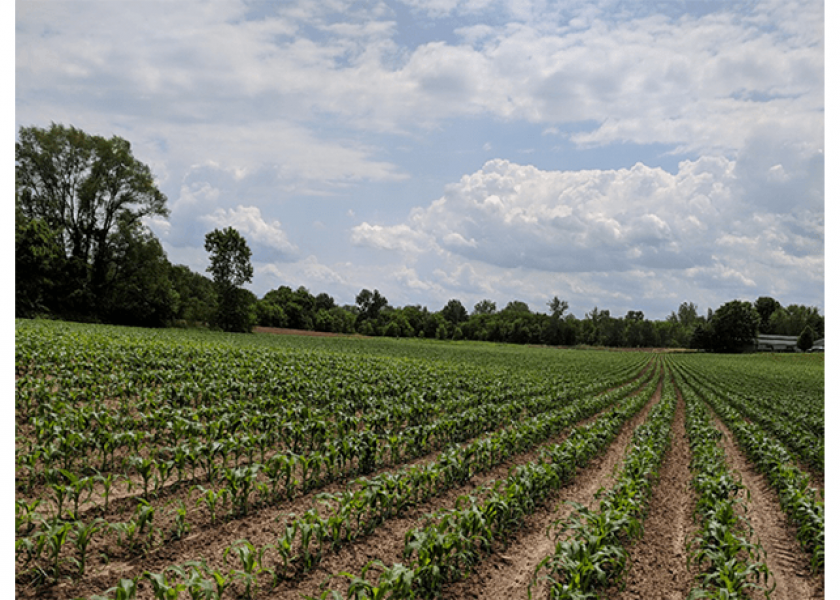Already popular Michigan local deal gets boost from e-logs

Higher freight rates that are boosting the cost of distant produce have been making in-state options even more attractive to retailers.
As have producers across the U.S., numerous Michigan growers reported that the electronic logging device mandate has made transportation significantly more expensive.
Steve Haaksma, sales manager for Byron Center, Mich.-based E. Miedema & Sons, said retailers are looking for even more local product as a result.
“Given the electronic logbooks that these over-the-road truck drivers have got to abide by now, it’s just really driven up the prices on (product) delivered out of the area,” Haaksma said. “If it used to cost $3 a package to have a case of cabbage shipped, now it’s costing $4-4.50 just because the freight rates have gone up because of these electronic logbooks, so a lot of our local (retailers), they’ve told us they want to push the local thing as hard as they can.
“It benefits us, but it benefits them, too,” Haaksma said. “I’m sure they’re getting sick and tired of paying these high prices, like for sweet corn out of Florida. Sometimes they’re probably paying as much in freight as they are f.o.b.
“With that, we’re optimistic that our local partners are going to really stand up this year and hopefully the majority of our supply will go that way and we won’t have to go out of state as much — because that’s where we could suffer because then we will be subject to those high freight rates,” Haaksma said.
Todd DeWaard, sales manager for Hudsonville, Mich.-based Superior Sales, also commented that higher transportation costs are a factor in buying decisions.
“We’ve seen a big increase in local demand the past few seasons as more customers put a focus on it and freight rates increase from the West Coast,” DeWaard said.
Todd Van Solkema, CEO of Byron Center, Mich.-based Van Solkema Produce, reported that interest in local continues to accelerate.
“It’s increased drastically over the last probably five years, and it keeps building,” Van Solkema said. “(Retailers are) looking for more items that are local that aren’t just the normal staples, (so we’re) getting into Brussels sprouts and that type of thing, green onions.”
Loren Buurma, partner in Buurma Farms in Gregory, Mich., also said that retailers in the state have been very supportive.
Brian Bocock, vice president of product management for Naturipe Farms, said the same holds true for blueberries.
“There is huge Midwest local demand for Michigan locally grown blueberries,” Bocock said. “Almost every retailer in the Midwest looks forward to building big promotions around Michigan’s ‘Little Blue Dynamos.’”
Haaksma said sweet corn continues to be one of the most popular items to promote as local.
“Sweet corn’s an item that tastes so much better (the closer it is) to the harvest date,” Haaksma said. “If you pick corn today and eat it tonight, it’s just incredible.”
Retailers market local product in numerous ways.
“They’ve come out here and shot commercials, like short social media commercials,” Haaksma said. “There’s in-store advertising. They’ve got pictures of the Miedema boys standing out in a field, (with signage) saying ‘We support our local farmers.’
“They go a step further than what you’d think they would,” Haaksma said. “We appreciate that.”
John Bakker, executive director of the Dewitt-based Michigan Asparagus Advisory Board, said local demand for the vegetable is huge.
“We have great, just fantastic support from our Michigan retailers, and it’s kind of a really big deal for spring vegetables, (the) first really fresh thing of the year, so they make a big deal out of it,” Bakker said.
While local is key, one of the significant developments for Michigan asparagus this season is that a significant amount will be going west of the Mississippi.
“We started out kind of the Michigan deal for a while and then outgrew that, then it was East Coast, now actually we have a couple of West Coast firms that are marketing for us,” Bakker said. “So we’re expanding our footprint every year.”







